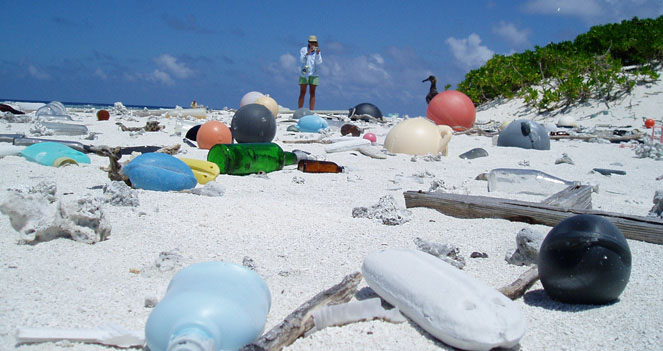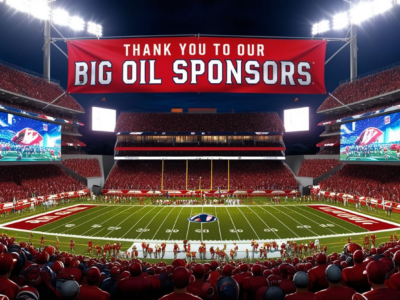Tackling Plastic Pollution in the Oceans
New Emmett Center report recommends top ten solutions for marine plastic debris

Ever wonder where the plastic crap that we generate winds up? Much of it ends up in the oceans. An estimated 20 million tons of plastic litter enter the ocean each year, much of it from land debris but also coming from fishing and aquaculture operations, shipping, and other marine sources. The stuff takes a really long time to degrade in marine environments, and it has nasty effects. Many of us have seen photos of marine animals trapped in debris. Necropsies of many marine species show stomach contents full of plastics (it’s a cruel coincidence that industrial plastic pellets often are sized and shaped just like fish eggs, and plastic bags look like jellyfish). And it brings billions of dollars in economic costs, too, from beach clean-ups, vessel damages, and lost tourism and fisheries revenues.
Plastic debris in the oceans is a major and growing environmental problem, and it isn’t easy to address. It’s transboundary. It’s often hard to figure out where plastic debris is coming from. And the high seas is like the wild west of environmental jurisdictions — very few rules apply, and those that do apply are difficult to enforce. But there are answers. Stemming the Tide of Plastic Marine Litter: A Global Action Agenda, the Emmett Center’s most recent Pritzker Brief, explores the sources and impacts of plastic marine litter and offers domestic and international policy recommendations to tackle these growing problems. Our report (co-authored by me along with Mark Gold, Katie Mika, Legal Planeteer Megan Herzog, and J.D. student Lara Leitner) documents the devastating effects of plastic marine litter and reviews the policies and international agreements relevant to the problem, assessing their efficacy and finding, not surprisingly, that more is needed. We provide a suite of recommendations to achieve meaningful reductions in plastic marine litter. The report’s “Top 10” list of recommended actions includes:
- a new international treaty with strong monitoring and enforcement mechanisms;
- domestic and local regulatory actions, such as bans of the most common and damaging types of plastic litter;
- extended producer-responsibility programs; and
- the creation of an “ocean friendly” certification program for plastic products.
Changing our path on plastic pollution won’t be easy, and it will take a long time – which is all the more reason to start now. The oceans shouldn’t be our dumpster for much longer.





Reader Comments